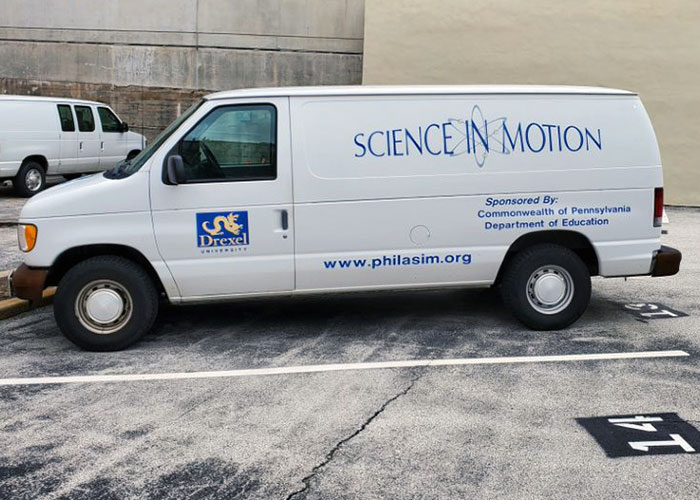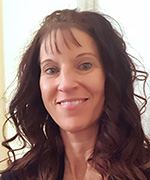Drexel’s Science in Motion Program Helps Level the Playing Field
By Kari Lindsey
 The Science in Motion van puts science experiments on wheels.
The Science in Motion van puts science experiments on wheels.
April 29, 2020
 Drexel University’s Science in Motion (SIM) program is an innovative, basic education/higher education partnership, funded by the Commonwealth of Pennsylvania since 2000, that provides equipment and materials for high school and middle school chemistry classes. The program employs a mobile educator, Charles Boritz, who delivers modern scientific instrumentation to schools, while Program Director Susan Rutkowsky, PhD, associate department head of chemistry, provides technical support to teachers.
Drexel University’s Science in Motion (SIM) program is an innovative, basic education/higher education partnership, funded by the Commonwealth of Pennsylvania since 2000, that provides equipment and materials for high school and middle school chemistry classes. The program employs a mobile educator, Charles Boritz, who delivers modern scientific instrumentation to schools, while Program Director Susan Rutkowsky, PhD, associate department head of chemistry, provides technical support to teachers.
The program levels the playing field between well-funded and poorly funded school districts. Annually, Drexel SIM reaches a racially and ethnically diverse group of about 10,000 students at 10 schools in the School District of Philadelphia, the majority of which serve low-income communities. These contacts engage the students with science lab experiments that are normally unavailable because of inadequate science budgets, too-large class sizes, and other unfavorable learning factors.
SIM improves science education by transforming high school classrooms into real science classrooms where the primary approach to learning is active, hands-on laboratory experiences — not asking students to passively read about how others do science. Every student is directly engaged in using state-of-the-art equipment, from analytical balances to gas chromatographs. All equipment, materials, write-ups and waste removal for laboratory experiments are provided. Hands-on experiments and simulations are designed to be easily used in almost all classrooms and to align with curricula. The objective is to produce high school graduates who are prepared either to enter a skilled workforce or succeed in higher education.
The program also engages students by providing scientific equipment and support for science fair projects. As a result of Drexel SIM providing materials and expertise to George Washington High Schools, students won three first-place awards and two special awards at the 40th Annual Philadelphia George Washington Carver Science Fair.
Sunita Patil, a teacher at Parkway Northwest High School, says, “I am very thankful for Science in Motion’s services. Our students have very good, hands-on activities because of this program.”
The popularity of SIM among teachers and students can be attributed to the high level of support provided to overcome the major barriers to good science education. This support includes the following:
- SIM sends a mobile educator to schools with multiple sets of equipment to give every student hands-on experience and to support the teacher in the classroom.
- SIM lends equipment to trained teachers without the mobile educators to allow greater access to equipment and more frequent lab experiences for their students.
- SIM provides hands-on technical support to keep teachers on the cutting edge of science.
Kristen Harris, a teacher at Northeast High School, says, “Drexel Science In Motion has been an invaluable resource to several teachers here. We use the lab write-ups and equipment in chemistry, honors chemistry and AP chemistry. The equipment is high quality, and the teachers benefit immensely from using these resources. I am so grateful for Drexel Science in Motion.”